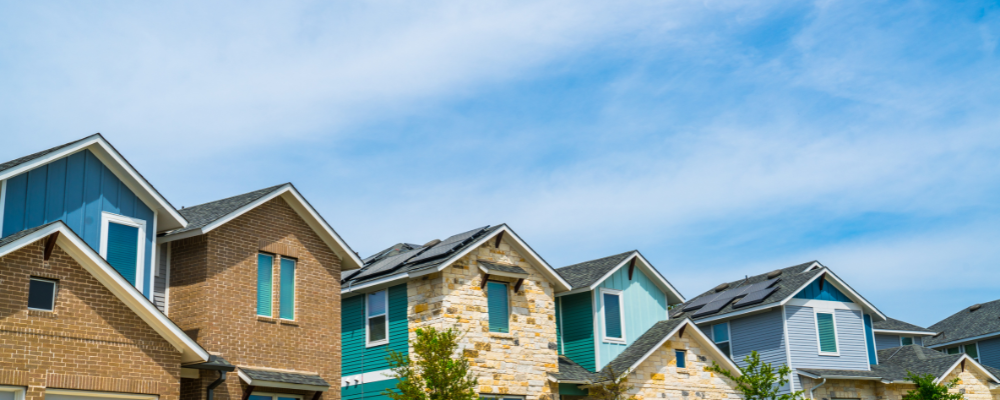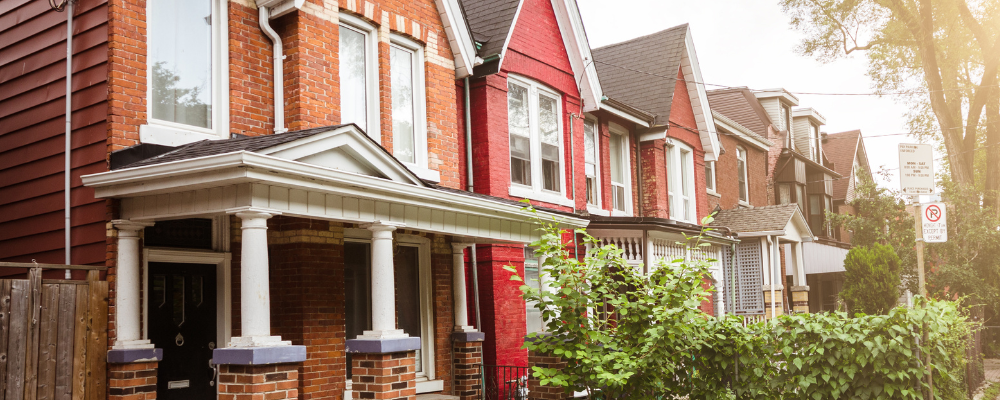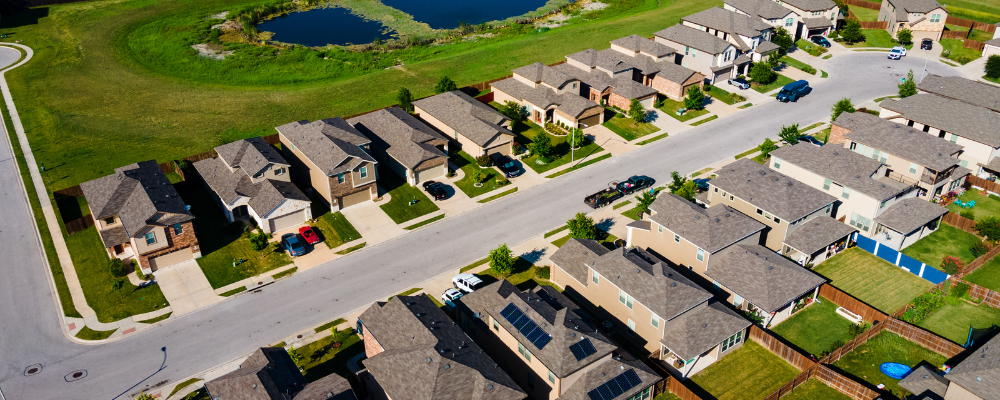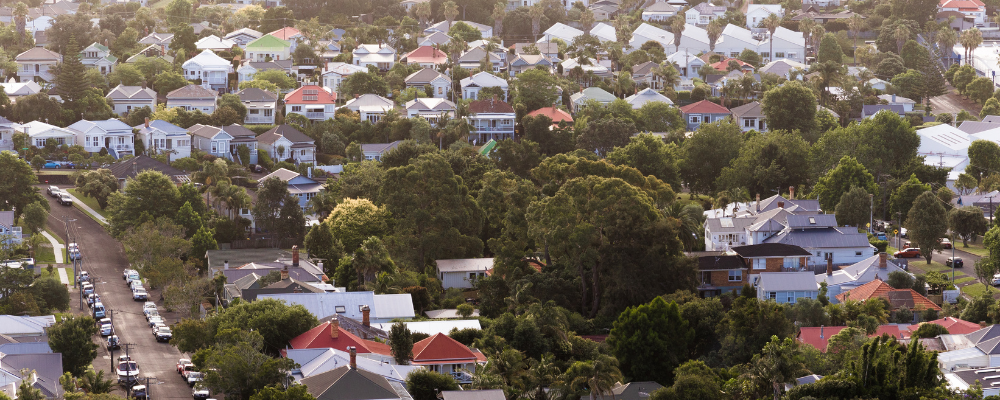A brief outline
A major concern plaguing the country right now is around the possibility of a recession. We haven’t seen a recession since the 2008 financial crisis, and now we could be headed for one. For real estate investors, we answer a pertinent question, what does a recession do to the housing market?
Table of Contents
While the US housing market took a nose-dive initially, as a result of the pandemic, it then soared again as home prices sky-rocketed. More recently however, the after-effects of the pandemic have begun to impact the US even further and talk of a housing bubble and a recession are rife. As a result of this, home buyers are looking for news as to whether home prices will decline any time soon, as prices have continued to rise this year, despite the large increase in mortgage rates.
So, what does a recession do to the housing market? Let’s take a closer look at how the economy is performing and how a recession will impact real estate.
Is the United States entering a recession in 2022?

The word on the (Wall) street is that the US could enter a recession this year as the economy begins to slow down and the real estate market quickly follows suit thanks to rising interest rates. In June, the stock market entered a period of over 20% decline from a peak. While this isn’t a direct indication of a recession, a decline to this extent in the stock market often happens alongside a recession.
This combined with inflation hitting a high that hasn’t been seen in 40 years and interest rates rising at an alarm pace, has caused concern amongst many in the country about whether a recession is in fact happening. While there may be some similarities between the economic performance we are experiencing now, and previous recessions, this doesn’t guarantee that we are in one just yet.
In a congressional testimony, Jerome H. Powell, the chair of the Federal Reserve, said that the Fed may be able to get a handle on inflation, however a recession is “certainly a possibility.” While President Biden was quoted in an interview with The Associated Press saying that “there’s nothing inevitable about a recession.”
In June, new home construction was down by 19% from February this year, and 16% from July 2021. We’ve seen this in years gone by when a housing market is declining, as builders scale back on construction as the number of existing homes on the market increases, which points to a lack of demand and an increase in supply.
Goldman Sachs recently revised their economic growth forecasts to lower than they previously predicted, showing the likelihood of the economy shrinking this year as a higher possibility. The likelihood of a recession went from 15% to 30% in their latest forecast, according to the New York Times.
Do house prices rise or fall in a recession?

Typically, in recessions, the demand for houses declines and as a result house prices will fall. This was the case in the last recession back in 2008 when the housing bubble burst and the recession began. However, the current economic situation in the US is quite different, with one of the major differences being that houses are no longer over valued to the extent that they were previously, and the lending laws have been revised which means that less borrowers are at risk of defaulting on their loans with mortgage lenders.
According to Rick Palacios Jr., head of research at John Burns Real Estate Consulting, the current housing market is already in a recession because it is contracting. He predicts that home price declines will happen in many regions by 2023 and 2024, saying that home building is slowing down and home inventory is rising, which could lead to home prices heading down towards negatives by the end of the year.
Moody’s Analytics predicts that if an economic recession hits, the result will be a 0% house growth, year-over-year for the country, and 15-20% house price cuts for particular areas where the housing markets are overvalued. Palacios cites Las Vegas, Austin and Phoenix as some of the areas where houses are overvalued, and where a larger housing price contraction could take place.
In other words, in line with typical recession patterns, housing prices are likely to decline in the US. However, it’s unlikely that prices will decrease to the extent that they have before, as the country isn’t quite in the same economic position as before and prices first need to level out to pre-pandemic levels. It’s a gradual process that isn’t expected to happen quickly.
Understanding the impact of a recession on the housing market

1. Rising interest rates
One of the main factors currently affecting the housing market is the rise in interest rates. This generally happens to combat the rise of inflation, and the resulting impact on the housing market is that mortgage rates rise as well, thanks to the interest rate surge. The rise in these numbers has had a larger impact on real estate than the recession itself. Demand and affordability remain the keys to the real estate market.
2. Increased housing inventory
With rising mortgage rates some people may be unable to afford home ownership, which means that those who were going to buy homes may not, and the demand for homes will decline. This can already be seen by the level of affordability falling to the lowest it as been in 16 years, according to the National Association of Realtors.
People who already own homes may not be able to afford their monthly mortgage payments due to the mortgage rates increase, which means that they will enter foreclosure and even more houses will land up on the market.
3. Home price growth slowdown or decline
The price of homes across the country has been growing at an exponential rate, however the result of the increase in inventory and subsequent decrease in demand means that there will be an oversupply of houses. So, for sellers to remain competitive and get their houses sold, they will need to lower their prices.
While house prices aren’t expected to drop off the deep end, the exponential house price growth we have seen over the last 2 years is expected to slow down over the next few months. This should take house prices back to pre-pandemic levels or thereabouts. From there, some of the overvalued markets could see further decline, however this all remains to be seen.
4. Construction slows down
As a result of the decrease in demand for housing, the construction of new homes will also slow down dramatically. This could in turn impact the Gross Domestic Product (GDP) of the country, which is expected to see a contraction in the second quarter of 2023, according to MarketWatch. The ripple effect of the housing market contraction can be far-reaching into the economy, however it’s unlikely that this will be to the same detrimental impact as we saw in the 2008 recession.
How does a recession affect mortgage rates?

A recession is defined as two consecutive quarters of negative economic growth, according to Federal Reserve. During a recession, the Federal Reserve makes adjustments, in order to minimize the impact on the economy. People generally aren’t spending as much because during economic turmoil unemployment rates are higher.
Thus, the Fed needs to adjust the interest rate in order to counter the damaging effects of the recession, and this usually means a drop in the interest rate. There is typically less of a demand for houses and therefore loans during recessions, so the Fed has been known to cut interest rates and ease credit access.
Lenders usually base their rates of the Fed’s interest rate decisions. As such, an interest cut during the recession will often lead to decreased mortgage rates. This means that people who are paying off their homes will benefit from this, and those who decide to take the leap into home buying during a recession can benefit too. Home buying power therefore strengthens during a recession.
Is it a good idea to buy a house during a recession?
Buying a home during a recession can seem like a daunting decision, however it all depends on your situation and the rise and fall of mortgage rates. It can be a good opportunity if you’re ready to take the leap during an uncertain period in the economy.
Bear in mind, recessions are not permanent, and they are just a period of time. If interest rates go down and mortgage rates follow, this, combined with lower house prices could spell a great opportunity for home buyers.
However, the current economic downturn isn’t quite like previous recessions because employment levels are healthy, and inflation is rising. According to Ken Rosen, chairman of the Berkeley Haas Fisher Center for Real Estate and Urban Economics, “Normally if we get into a recession, the Fed would pour money into the market. This time, the Fed is not going to do that because inflation is high,”. He goes on to say, “This is going to be a slower response and inflation is going to take time to come down.”
It’s important for home buyers to look at their budget, how stable their employment is what sort of funds they have available in the event of an emergency, before purchasing a home in a recession.


